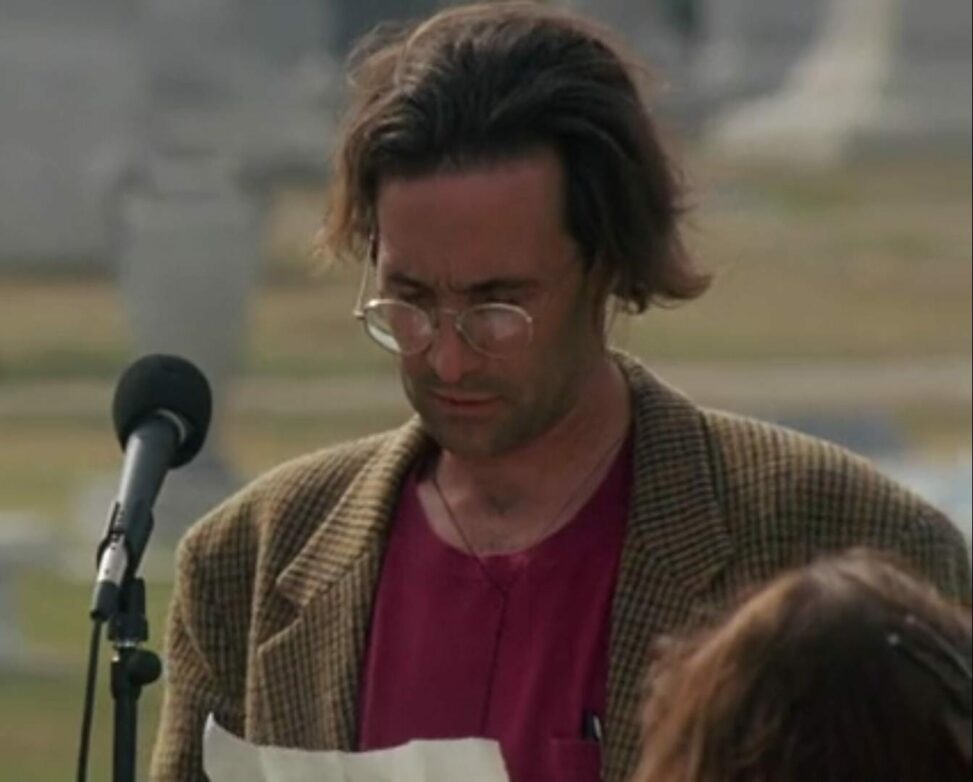In the 1992 film The Player, after protagonist and big time Hollywood producer Griffin Mill has accidentally killed prospective writer David Kahane, he decides to attend his funeral, and the character to be discussed here is Kahane’s friend Phil. Phil only appears for a handful of minutes and gives one speech but is a very important figure because during his scene with Mill, Kahane came across as entitled and pretentious. First thing Kahane does once they sit down at the bar is to mention his trip to Japan. Kahane makes it very clear how important and meaningful that trip was to him. We quickly realize he cares so much about his trip that he turned into a script, and this is what he had pitched to Mill over six months ago. When Mill fails to remember this, Kahane gets visibly and irrationally upset. It makes one deduce that Kahane thinks his experience as a white, privileged American student in the faraway “exotic” land of Japan is so profoundly interesting that it should be one of the handful of picks a studio makes per year. As a writer, of course you would be disappointed that your story was not taken as seriously as you hoped, but to insult and act out because of it? That is just childish. So, from the very start, the audience does not have a brilliant view of David Kahane. But he was still a human being, he had friends who cared enough to attend his funeral. That’s what brings us to Phil and his eulogy at David Kahane’s funeral. It is both moving and humorous at times, while containing heavy doses of cynicism and resentment, Phil is mad that his friend, who he sees as brilliant, has been taken out. His words give us a whole other side of Kahane, without ever saying anything directly about their relationship. The actor here does a great job with his physicality, raising his arms when declaring “This is another one for David Kahane!” and subtly twitching his face muscles as if holding back the tears for the sake of his speech. In an example of business, Phil proceeds to read out a letter to everyone in attendance of David Kahane’s last written words. Clearly meant to be the start of something far greater than anyone can imagine, even David. But now, those words, the artistic intent behind them, forever lost thanks to our protagonist. This sequence highlights the contrast between the authenticity of personal relationships and the artificiality of the film industry. It serves as a poignant moment of irony and makes the audience reflect on the broader narrative of the film. And without Phil’s words and performance, the moment does not work, and the movie would not work as well.

Provide Feedback